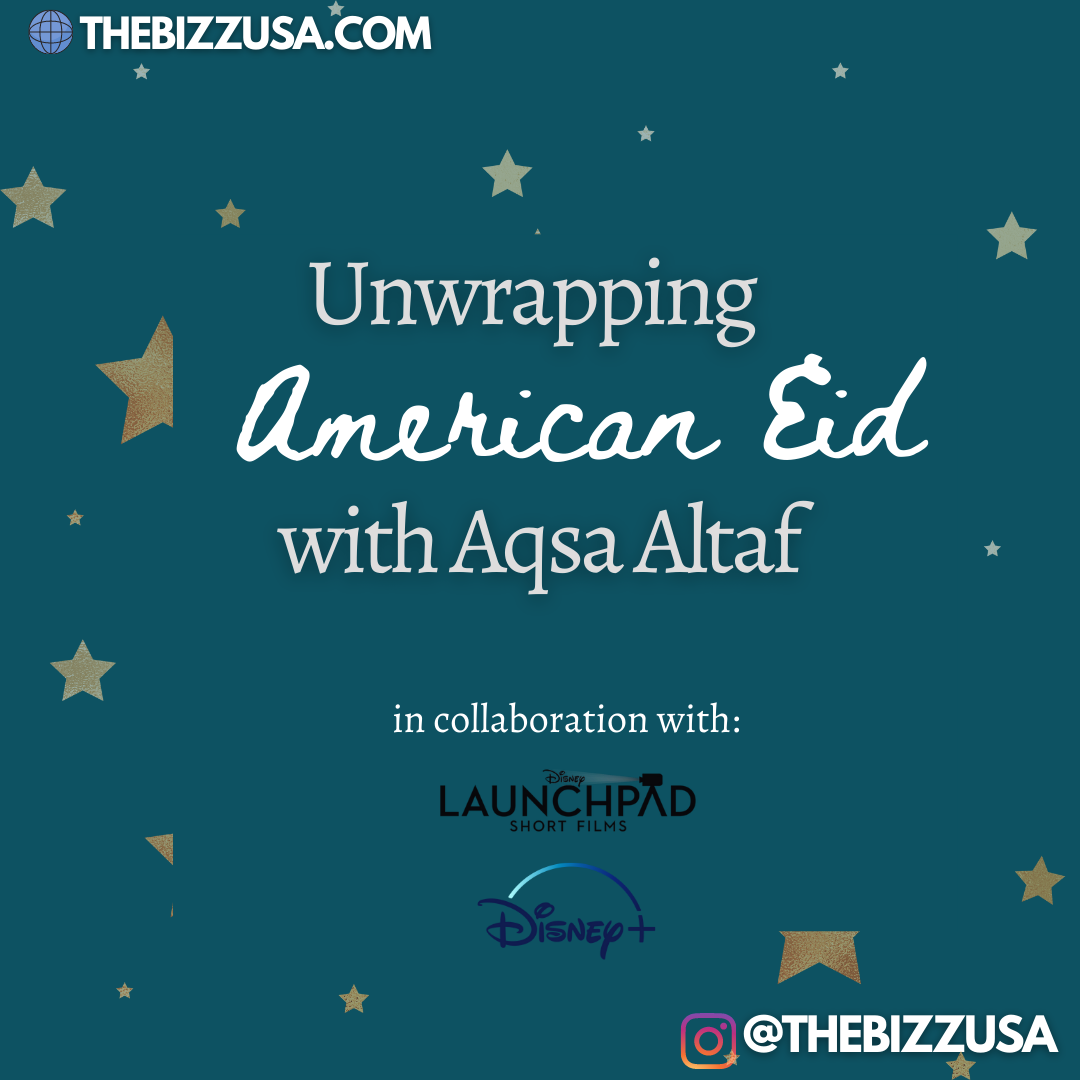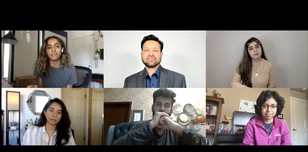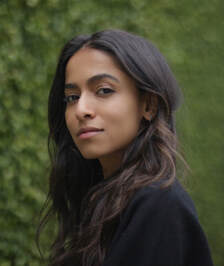|
July 14, 2021 / Source: The Bizz USA By Aaryana Sharma and Haarika Kalahasti Disney’s new short film series, Launchpad, released May 28th, 2021 and is definitely worth watchin, and we, The Bizz USA, got to get in on the new project. We had the wonderful opportunity to talk to Aqsa Altaf, the director of American Eid (a short film on the Launchpad series) and got some behind-the-scenes information on her inspiration for the piece, the impact Aqsa hopes her film has, misrepresentation in the media, and so much more! Shot in the midst of the COVID-19 pandemic and the 2020 presidential elections, American Eid celebrates the diversity of different cultures and the magic of storytelling in today’s society. The film features Ameena, a nine-year-old girl who wakes up on the morning of Eid and realizes she still has to attend school. Unlike in her home in Pakistan, Eid is no longer a public holiday and Ameena is unable to celebrate with family and friends. Ameena makes it her mission to make Eid a public holiday by starting a petition within her school. Meanwhile, Ameena’s older sister Zainab tries to hide her traditions and fasts outside of school. In “American Eid”, Ameena and Zainab come together and embrace their new home as their new home begins to accept them. Faced with similar challenges as Ameena and Zainab in “American Eid”, Aqsa moved to a different country where she was unable to find a close-knit group of friends and family to practice her traditions with.
“I was born in Pakistan, Sargodha Pakistan, and I moved to Kuwait and was raised there but my parents…both my parents were migrant workers in Kuwait so I was raised in Kuwait my whole life and I immigrated to [the] US when I was 21. And I immigrated alone, like my family was still back in Kuwait at that time, and I remember every Eid - this is supposed to be like my “new home” right - but every Eid and Ramadan I didn’t have a community to celebrate with. “ Because of assimilation pressures, Aqsa felt the need to stay quiet and practice her traditions independently, but soon realized that she had the ability to share her experiences and educate those around her. “I kind of started out as Zainab, where I’m like “maybe I should assimilate maybe I shouldn’t talk about it” to becoming Ameena where I’m like “I want to talk about it, I want to tell everybody about it, I want to make a film about it” ‘cause there’s been no film about Eid. The experience comes from that same idea of like “if home is not a place where you can celebrate what means so special to you, then is it really home?”. “That’s the heart of the story at the end of the day. And I realized… in order for me to accept home, the home has to accept me for who I am.” We also talked about the problematic consequences of filtering American Eid through the lens of a Western audience, a practice commonly done when trying to make a story more inclusive. While this may make the story easier to understand it also dismisses the authentic elements of the narrative and erases the cultural nuances which were the highlight of the piece. “I never wanted to say “this is for an American audience”... This story had to be authentic, you know. Obviously it’s for everybody, but I didn’t want to filter it through one gaze. I remember as I was writing the story I kept on thinking like “oh do I need to filter this for people to understand what Eid is, should I be comparing this to Christmas”,for example, right. And I realized like, why do I need to do that? I had grown up watching so many stories on Christmas from Disney, and I never got it filtered to me… but I understood what the stories were about because it was told through a character.” Mini Q & A Session with Aqsa AltafQ: When did you realize you wanted to become a film director? A: "The biggest thing I realized is the power of it. I grew up in a society where we were just treated like second class citizens in Kuwait and people’s passports were taken away and it was so normalized like “oh your passport taken away as an insurance that you wouldn’t run away” and I remember thinking “oh that’s how the world functions'' until I watched film and TV. So the bubble I was raised in was bursted because of something I watched. And I thought [to myself] “that’s a power, that’s the power of film and TV. Imagine the amount of change you can bring if somebody that looked like me was on the screen and a girl was watching this and was questioning her societal injustices as a result. And that’s when I realized the power of mainstream film making and how much we can get people to start questioning things around them that are not necessarily right. That’s when my love for filmmaking started. " Q: What was the best part of creating “American Eid”? A: “I would say the fact that there was a Disney castle logo at the beginning of the film followed by an Eid story. That was something I always wanted as a child-- just to see that. It’s just so meaningful because it’s such a big brand. To have it associated with something so special to us, makes it even more global. It just feels like we’re sharing it with the whole world and something about that is so beautiful. I think that would be very special.” She added that along with the Disney brand, her colleagues and peers began to recognize the importance of her traditions and become more respectful of these diverse cultures. Aqsa reflects that the feedback she received on her film made her feel like she was finally home. It also made her realize how much closer immigrant families are than she first presumed. “I was like ‘this is my story’ … and when I shared the film, everybody was like “I experienced the same thing, this is my story too”. It just goes to show how universal our experiences as immigrants are and as finding our home in this home is and I think something about that is so beautiful and all the cast had that in common. Aqsa finished our discussion by restating a powerful idea that she had just started to create the first series of Muslim representation in mainstream media. “Just one story isn’t enough. All these years our stories have not been told by us, and inherently because of that there’s a glass ceiling of who we are created by others for us and every story we tell, even if it features a Muslim protagonist, and doesn’t necessarily have to do with identity, humanizes it and cracks that glass ceiling a little. And one story isn’t going to completely crack it, but if we tell like a hundred stories, it’s eventually going to crack that ceiling, and that’s what I hope to do .” Aqsa Altaf is a filmmaker based in Los Angeles, California who tells underrepresented stories for the immigrant diaspora. Her short film “One Small Step” was played at the American Pavillion at the Cannes Film Festival in 2019 and was shortlisted for the BAFTA film awards. Additionally Aqsa was nominated for the Young Director Award at Cannes Lions in 2019. Currently she’s working on her first feature film and TV series based on her short “Heat” with a major studio. Find more of Aqsa’s work here. Her short film, “American Eid” is now streaming on Disney+, so be sure to check it out!
0 Comments
Leave a Reply. |
Our WritersHaarika Kalahasti Archives
September 2021
Categories |




 RSS Feed
RSS Feed